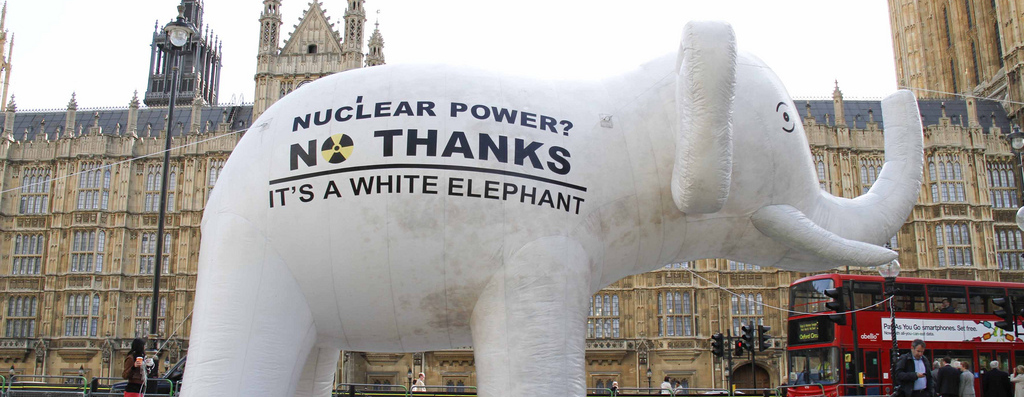Brussels / Prague, 22 May 2008 – Friends of the Earth Europe and Greenpeace, the only environmental organisations represented in the European Nuclear Energy Forum, have sent a letter [1] to European Energy Commissioner Andris Piebalgs to express their concern about the industry biased Forum. The two organisations have asked the Commissioner to call for the withdrawal of the working group reports on ‘Risks’ and ‘Opportunities’, which they deem unsatisfactory, and to counteract the Forum’s industry bias by insisting on balanced civil society participation.
Patricia Lorenz, nuclear campaigner for Friends of the Earth Europe said: “The two environmental organisations convey the concerns about nuclear energy that are shared by the majority of European citizens [2] [3]. I made our opinion clear at the meetings. However, the final report does not reflect the actual discussion we had in our working group. Therefore we asked Commissioner Piebalgs to significantly alter the process and content of the Forum to respect its mandate or otherwise to dismantle it.”
Mrs Lorenz represents Friends of the Earth Europe as a member of the working group on “the Risks of Nuclear Energy”, where the harmonisation of safety standards in the EU is discussed. Although the application of “best available technology” is the only responsible way forward, the working group report is calling for the implementation of “WENRA reactor safety levels 2008” [4]. In addition to this, the difficulty in finding real solutions for nuclear waste is being downplayed and called “a political more than a technical problem”.
“The EU needs an honest and balanced discussion on nuclear safety levels, waste and non-proliferation. However, these crucial issues were not properly addressed in the working group. Instead, the nuclear industry and Commission representatives recycle their old mantra that these issues are mainly about influencing public opinion,” added Mrs Lorenz.
The European Nuclear Energy Forum (ENEF) was founded in November 2007 by the European Council and Commission with a mandate to be an ‘open and structured discussion among all key actors’ about the opportunities and risks of nuclear power. The European Commission has indicated that it has high expectations of the outcomes of the ENEF discussions, and that it will seriously consider ENEF recommendations for future European nuclear policy.
***
NOTES:
[1] See http://www.foeeurope.org/activities/Nuclear/pdf/2008/Letter_to_Piebalgs_re_ENEF.pdf
[2] “Only 1 in 5 citizens support the use of nuclear power”, Eurobarometer: Energy Technologies: knowledge, perception, measures, p. 33, 2007.
[3] “Most [citizens] would agree to NGOs representing their interests [in the decision making process on national energy strategies]”, Eurobarometer: Europeans and nuclear safety, p. 58, 2007.
[4] WENRA is the Western European Nuclear Regulatory Association and was established in 1999 to develop a common approach to nuclear safety and examine nuclear safety in the applicant countries at that time. Since only regulators of nuclear countries are represented, non-nuclear EU countries were excluded in the preparation of the WENRA reactor safety levels 2008. The proposed WENRA reactor safety levels 2008 are too broad, have no concrete safety goals and are not much stricter than existing IAEA nuclear safety recommendations and guidelines. To illustrate, if the WENRA safety levels were used, all ageing nuclear reactors in the European Union would pass the safety standards. Where the large public concern about nuclear safety justifies very ambitious nuclear safety standards, the WENRA reactor safety levels 2008 are no more than the lowest common denominator of nuclear safety in the EU. Furthermore, WENRA does not impose high safety levels for new nuclear power plants, nor for the lifetime extension of existing nuclear plants.






